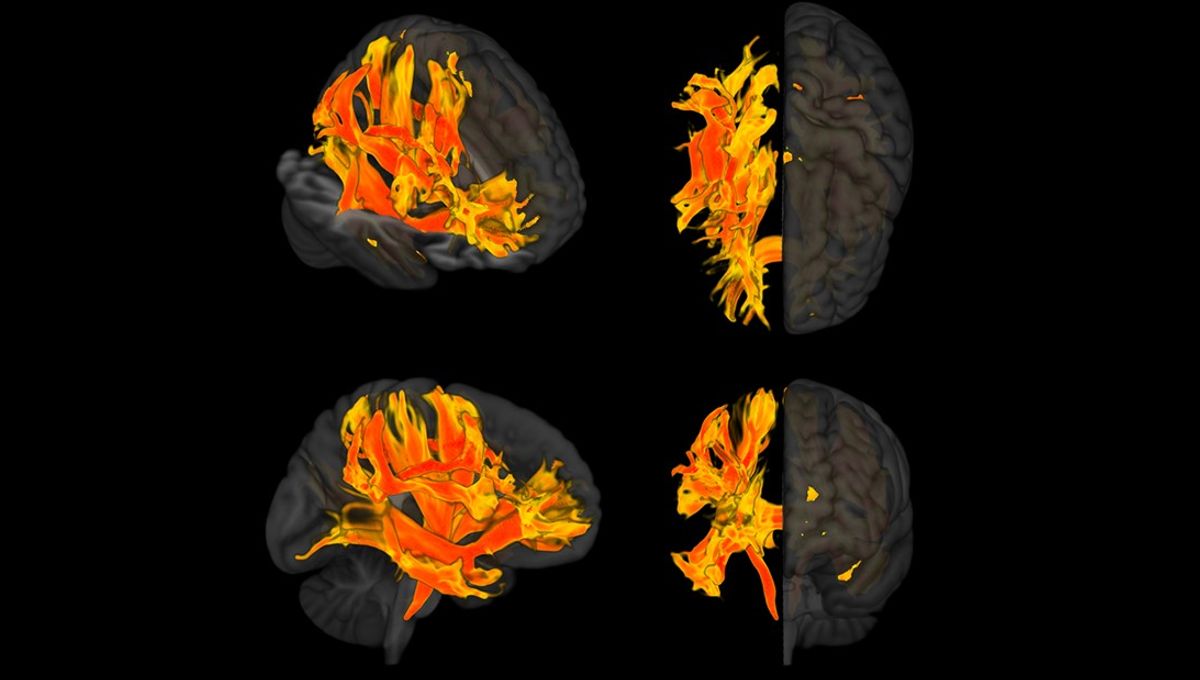
Long-term changes in the brain caused by high blood pressure have the potential to cause cognitive decline, which may progress into dementia. This link has long been observed, but a new study has revealed for the first time how these two conditions could be connected.
Scientists used information gathered from magnetic resonance imaging (MRI) scans of people’s brains, genetic testing, and observational studies of thousands of people to look at how high blood pressure affects cognitive function over time. They then cross-checked their findings in another large group of Italian patients, which confirmed what they had seen.
“By using this combination of imaging, genetic and observational approaches, we have identified specific parts of the brain that are affected by increases in blood pressure, including areas called the putamen and specific white matter regions,” explained senior author Professor Tomasz Guzik in a statement.
“We thought these areas might be where high blood pressure affects cognitive function, such as memory loss, thinking skills and dementia. When we checked our findings by studying a group of patients in Italy who had high blood pressure, we found that the parts of the brain we had identified were indeed affected.”
Damage to nine different brain regions was found to be associated with both high blood pressure and cognitive decline. These areas of the brain are involved in diverse functions, including learning, decision-making, task planning, and emotional regulation. Some of them are regions of white matter, which form connections between different structures in the brain and allow information to be passed between them.
High blood pressure caused changes in these internal brain connections, as well as decreasing the volume of brain tissue and the surface area of the cortex. The researchers also saw changes in brain activity.
To assess whether high blood pressure was really causing these changes in the brain, rather than it just being a coincidence, the authors used a technique called Mendelian randomization. “It works by using a person’s genetic information to see if there is a relationship between genes predisposing to higher blood pressure and outcomes,” said Professor Guzik. “In our study, if a gene that causes high blood pressure is also linked to certain brain structures and their function, then it suggests that high blood pressure might really be causing brain dysfunction at that location, leading to problems with memory, thinking and dementia.”
As first author Dr Mateusz Siedlinski confirmed, “Our study has, for the first time, identified specific places in the brain that are potentially causally associated with high blood pressure and cognitive impairment.”
Being able to zero in on specific brain structures could pave the way for personalized treatment approaches for the most at-risk patients. These new findings could help scientists and clinicians working to catch cognitive changes as early as possible, and hopefully even prevent them altogether.
High blood pressure is a common problem. An estimated 30 percent of the world’s population is affected, and a further 30 percent show signs of being in the early stages.
With further research, scientists should now start to build up a picture of precisely how high blood pressure leads to the incremental changes that can have such a damaging impact on brain function over time.
The study is published in the European Heart Journal.
Source Link: High Blood Pressure Damages Brain Regions Associated With Dementia, World-First Study Finds